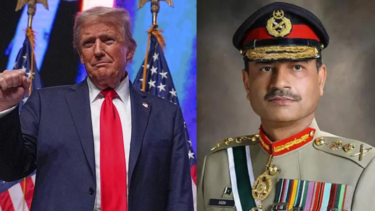Trump's Meeting with Pakistan's Military Chief: Implications for US-Pakistan Relations and Iran
Donald Trump's recent White House lunch with Pakistan's army chief, General Asim Munir, marks a notable shift in US-Pakistan relations. This meeting, the first of its kind between a US President and a Pakistani military leader (excluding heads of state), signals a potential warming of ties, driven by counterterrorism cooperation and economic opportunities.
Renewed Engagement
Previously strained under the Biden administration, the relationship now sees renewed engagement. Pakistan's role in capturing the alleged Abbey Gate bomber and discussions around trade, rare earth minerals, and cryptocurrency investments highlight this evolving dynamic.
Iran Factor
Trump emphasized Pakistan's extensive knowledge of Iran, amid escalating tensions in the Middle East. Israel's strikes on Iranian targets and Iran's retaliatory actions have prompted international concern. Pakistan, sharing a border with Iran, becomes a key player in this context.
Transactional Relationship
The US-Pakistan partnership, historically transactional and rooted in security concerns, faces a crucial juncture. While past alliances have yielded benefits, mutual distrust has often plagued the relationship. The enduring influence of the Pakistani military, as evidenced by Munir's prominent role, adds another layer to the dynamic.
Future Outlook
Whether this renewed engagement leads to a lasting, institutionalized relationship or remains a fleeting alliance hinges on Pakistan's strategic choices and the evolving geopolitical landscape.

